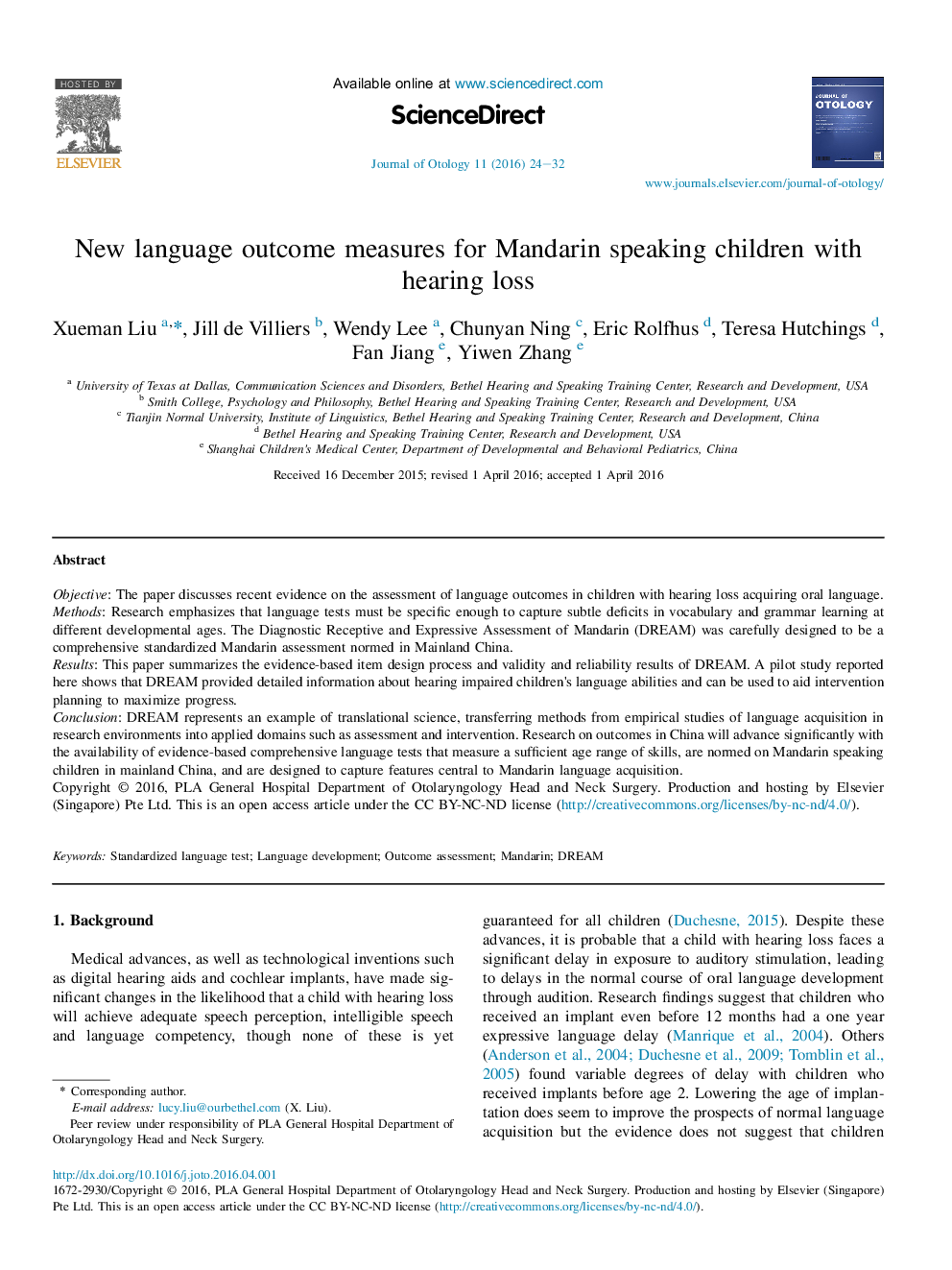| Article ID | Journal | Published Year | Pages | File Type |
|---|---|---|---|---|
| 4116616 | Journal of Otology | 2016 | 9 Pages |
ObjectiveThe paper discusses recent evidence on the assessment of language outcomes in children with hearing loss acquiring oral language.MethodsResearch emphasizes that language tests must be specific enough to capture subtle deficits in vocabulary and grammar learning at different developmental ages. The Diagnostic Receptive and Expressive Assessment of Mandarin (DREAM) was carefully designed to be a comprehensive standardized Mandarin assessment normed in Mainland China.ResultsThis paper summarizes the evidence-based item design process and validity and reliability results of DREAM. A pilot study reported here shows that DREAM provided detailed information about hearing impaired children's language abilities and can be used to aid intervention planning to maximize progress.ConclusionDREAM represents an example of translational science, transferring methods from empirical studies of language acquisition in research environments into applied domains such as assessment and intervention. Research on outcomes in China will advance significantly with the availability of evidence-based comprehensive language tests that measure a sufficient age range of skills, are normed on Mandarin speaking children in mainland China, and are designed to capture features central to Mandarin language acquisition.
